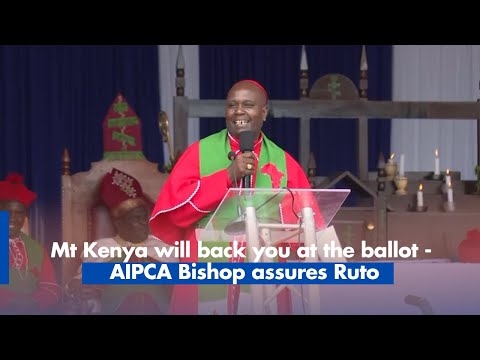

During the annual Law Society of Kenya conference in Diani, Kwale county, last month, Supreme Court of Kenya judge Isaac Lenaola doled out a piece of advice to Independent Electoral and Boundaries Commission chairperson Erastus Edung Ethekon:
“Have lunch with Immaculate Kassait!”
Kassait, presently the country’s Data Commissioner, worked as Director of Voter Registration at IEBC until 2020. Before joining the electoral body, Kassait had a long stint at the Institute for Education in Democracy under the tutelage of Amb Dr Koki Muli, unarguably the country’s foremost elections guru.
Kassait was part of the team that undertook the 2017 presidential election, which Justice Lenaola, alongside other judges of the Supreme Court, invalidated.
According to Lenaola, technology – and particularly the transmission of results – will be a major factor in the 2027 general election.
For three elections in a row, efforts to deploy technology to meet the threshold established by Article 86 of the constitution have failed.
Article 86 requires IEBC to deploy voting methods whose systems are simple, accurate, verifiable, secure, accountable and transparent. The votes cast must be counted, tabulated and the results promptly announced at each polling station.
The results must be openly and accurately collated, and appropriate structures must be put in place to eliminate electoral malpractice. The Article also mandates IEBC to keep election materials safe.
In all the presidential election petitions since 2013, the Supreme Court has meticulously, and publicly, scrutinised the role of technology in elections.
Quite apart from the court’s policy recommendations, members of the public have observed the commission’s own hirelings struggle to explain basic technological aspects of collating and transmitting the results.
The question around security and location of servers and fears of hacking of transmission by dark forces holding South American identities characterised the last petition. The Supreme Court dismissed them as hot air.
It has not helped much that the public only gets to know the details of deployed technology over the emotive, divisive and rushed petition times. Very little trust or credibility can come out of such a charged environment.
The obvious consequence is that many Kenyans do not believe that elections are won on the ballot. The common belief is that to fully secure a victory, candidates must contrive alternate measures other than faith in the electoral agency.
These doubts are not good for the country. Besides corrupting democratic processes and outcomes, they undermine national security and ultimately the stability of the country.
This brings me back to Justice Lenaola’s lunch advice to Ekethon. By every indication, 2027 will be a hotly contested election. The clouds gathering in the skies mirror those of 2007.
There is a President who is defending his seat after a difficult first term. He does not want to set the dubious record of being the first “one-term” president in the nation’s history.
We have a sorely bitter former Deputy President who is cobbling an opposition alliance to spite his former boss. We have in our stock a popular, cunning, serial candidate who might, finally, deploy his “last, last” bullet.
And we have a restless generation – Gen Z – raring to bury all of us alive.
The combination of these, and other, factors does not give IEBC too much room to wiggle. The new team must roll up its sleeves and get down to the business of restoring credibility in the electoral process.
Because the task ahead of them is enormous, they require the support of every Kenyan. They need the goodwill of the entire political class, the media, the international community, donors, civil society and all Kenyans.
They do not have the benefit of time. Soon, politicians will begin to make life very difficult for the IEBC. The upcoming by-elections, the continuous voter registration and big tenders in the offing will shake them up.
If the Ekethon team wants to make a difference, the starting point is to learn from the blunders of others. He should take the lunch advice seriously, not to learn mischief, but to learn mistakes and how to avoid them.
Musau is a Senior Project Manager, Friedrich Naumann Foundation, Member, Media Complaints Commission & Advocate of the High Court of Kenya.
















